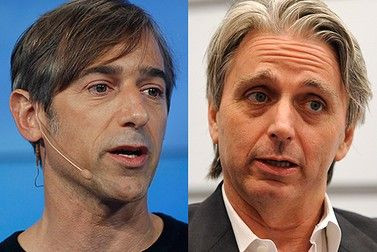Zynga Lashes Back At EA With Countersuit, Hires Samsung?s Law Firm To Take On Rival Game Developer

Tensions between Zynga Inc. (Nasdaq: ZNGA) and Electronic Arts Inc. (Nasdaq: EA) exploded all over again Friday as Zynga mustered an aggressive rejoinder to the copyright-infringement lawsuit filed against it by EA last month.
In Zynga's response to EA's suit, the social-game developer charged the multiline-game developer with undertaking an "anti-competitive and unlawful scheme to stop Zynga from hiring its employees and to restrain the mobility of EA employees in violation of the spirit of the antitrust laws and California public policy," according to the counterclaim document hosted by TechCrunch.
Saying that its fellow California-based game developer coerced industry insiders "by threat of objectively and subjectively baseless sham litigation," Zynga accused EA of seeking "a no-hire agreement that would bar Zynga's hiring of EA employees." Zynga is headquartered in San Francisco, while EA is headquartered in Redwood City.
Defending itself with a strong offense, Zynga said EA was resorting to legal measures only because of its own dire straits. "The truth is that despite years of trying to compete, and spending more than a billion dollars on acquisitions, EA has not been able to successfully compete in the social-gaming space and was losing talent, particularly to social-gaming leader Zynga," the latter wrote in its counterclaim.
Throughout Zynga's short but immensely successful history atop the social-media and freemium-driven side of the game industry, the company has made a name for itself by poaching top talent from across the rest of the industry. Among these high-profile hires were many EA executives, including former Chief Operating Officer John Schappert and former Chief Marketing Officer Jeff Karp, both of whom recently resigned at Zynga in the wake of its current restructuring and struggling share price.
EA began this legal battle last month when it filed a copyright-infringement suit against Zynga, accusing the rival developer of copying its Facebook version of the iconic "The Sims" franchise, "The Sims Social," with its recent release "The Ville." While Zynga was conspicuously silent about the suit as the company repaired itself amid fiscal and internal turmoil, Zynga returned in full force to the fray on Friday.
The social-game giant defended itself against the charges, saying "EA did not invent the genre" of life-simulation games. "Fifteen years before EA released its first life-simulation console game, 'The Sims,' Activision released 'Little Computer People,'" Zynga wrote in its response to EA's complaint.
Since its founding in 2007, Zynga has earned notoriety for its liberal views on artistic integrity and respecting the intellectual property of its fellow game developers. Many of its most popular mobile games such as "Words with Friends" and "Scramble with Friends" are little more than rebranded versions of Scrabble and Boggle, respectively.
However, the company has drawn flak for actions more controversial than imitating classic board games -- something many developers admittedly do. Many critics soured on Zynga for artlessly appropriating talent from independent game developers by acquiring popular titles that it wants under the Zynga fold (such as "Draw Something"). Failing that, it simply steals them, as many accused the company of doing when it created "Tiny Tower" last January, a thinly veiled co-opting of the independent smartphone game "Tiny Tower" whose creator could do little more than post his grievances on Twitter.
All this has made Zynga -- in the words of Stephen Totilo, the editor of the popular video-game site Kotaku -- "gaming's most hated company." EA did its best to capitalize on this David-and-Goliath image of Zynga's relationship to the rest of the game industry, saying in an interview with Eurogamer that it was "standing up for the industry" when smaller developers (like "Tiny Tower's" NimbleBit) couldn't afford to do so.
EA maintained this position in response to Friday's retaliation. In an email to Bloomberg, John Reseburg, a company representative, called Zynga's attack "a subterfuge aimed at diverting attention from Zynga's persistent plagiarism of other artists and studios."
"Zynga would be better served trying to hold onto the shrinking number of employees they've got, rather than suing to acquire more," Reseburg added in an unusually harsh note, showing how fierce the conflict has become.
Despite each side's hyperbole, much of the tension in this case arises from the ambiguity of intellectual-property rights in the game industry itself. As if to show what future impact this may have over the state of patent law in the industry, Zynga has now hired the law firm Quinn, Emanuel, Urquhart & Sullivan LLP. The firm also represents Samsung Electronics Co. Ltd. (Korea: 005930) in its patent-infringement tussle with Apple Inc. (Nasdaq: AAPL), as noted by MarketWatch.
Ironically enough, all three of the former EA executives hired by Zynga that were detailed in the company's vituperative legal response have now left, among its plethora of high-profile departures.
Zynga's share price rallied amid the company's defiant statements against EA, having already received a boost from Mark Zuckerberg's comments supporting his company Facebook Inc. (Nasdaq: FB) last week. Zynga's share price rose 7.43 percent to settle at $3.18 in trading Friday.
© Copyright IBTimes 2025. All rights reserved.






















